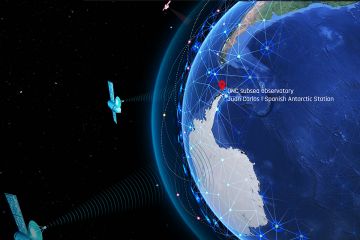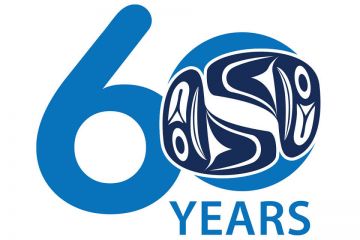Backgrounder: Clean energy projects at UVic get a $2.4M boost
Pacific Regional Institute for Marine Energy Discovery: $1.4M funding from WD
Canada’s off-grid remote communities, the majority of which are Indigenous, are reliant on expensive and dirty diesel-fueled electricity generation. BC is home to a disproportionately large number of these communities. For them, marine energy—wind, wave and tidal—is the predominant local renewable energy option. What’s holding back many of these communities from investing in marine renewable technologies is the lack of available data to assess the raw resource, how they can harness the resource, and how they can synchronize a marine energy supply with local demand.
The Pacific Regional Institute for Marine Energy Discovery (PRIMED) is a project led by UVic mechanical engineer Brad Buckham to eliminate the uncertainty and risk that are killing “first-of-a-kind” community based marine energy projects. The project was created with a $1.4M investment by Western Economic Diversification Canada. PRIMED will make use of extensive wind, wave and tide data which Buckham and the multi-partner West Coast Wave Initiative (WCWI) gathered at UVic over the past eight years, and consolidate it with new data gathered by sensors on the new Canadian Pacific Robotic Ocean Observing Facility (C-PROOF)—another UVic project led by oceanographer Jody Klymak which recently received $3.8 million from the Canada Foundation for Innovation. Using simulations, PRIMED will provide detailed predictions of energy supply prior to the deployment of devices.
PRIMED is critical to building the trust between communities and technology developers needed to initiate first-of-a-kind energy projects and anticipates becoming the model that other jurisdictions around the world follow.
Green transportation research for heavy-duty marine, mining and transportation sectors: $1M funding from Washington Foundation in conjunction with Seaspan
Electrified vehicles with advanced hybrid electric propulsion systems have been proven effective for improving energy efficiency and reducing harmful emissions. However, the technology has not been widely applied to heavy-duty transportation applications due to the large variation of their operational uses and high development costs.
The green transportation research team at UVic’s Institute for Integrated Energy Systems, built and led by mechanical engineer Zuomin Dong, carries out research on hybrid electric technologies that enable cleaner, lower cost fuel alternatives. Funding from the Dennis and Phyllis Washington Foundation in conjunction with Seaspan will advance solutions for heavy-duty marine, mining and transportation sectors working to meet their greenhouse gas targets and climate change mitigation goals—critical goals of the Pan-Canadian Framework.
Research is aimed at integrating advanced hybrid electric vehicle powertrain technologies with cleaner natural gas engines to break the barrier of ship and large vehicle powertrain hybridization. The research will lead to increased energy efficiency and operational cost improvements as well as a reduction in emissions and ship noise. Funding will accelerate the research and development work, build closer ties between UVic researchers and the marine and mining industry partners, and provide better training to specialists and future leaders in green transportation.
In this story
Keywords: Clean energy, Mechanical Engineering, West Coast Wave Initiative
People: Zuomin Dong, Brad Buckham




